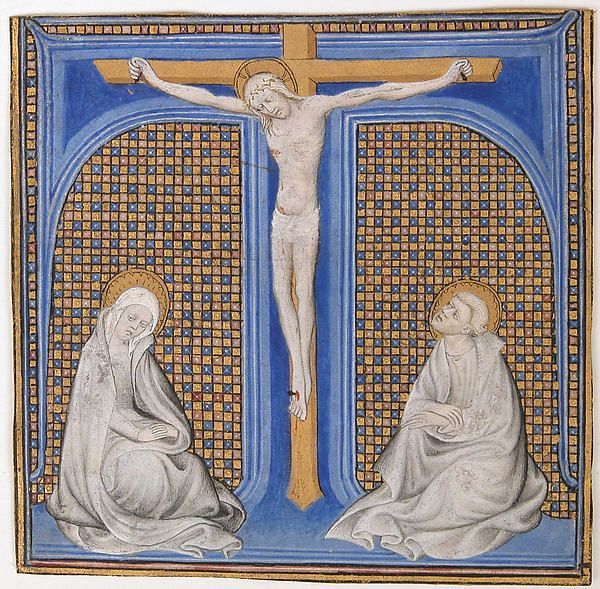Mercy
Prayer: In the preparatory prayer I will beg God our Lord for grace that all my intentions, actions, and operations may be directed purely to the praise and service of his Divine Majesty.
Composition of place: we can imagine the path towards Jericho; many people walking besides Jesus; many publicans and sinners; among them Zaccheus, a man of little stature, climbing up into a sycamore tree. Many were there and he chose one besides the path because he wanted to see Jesus.
Prayer of petition: we can ask a great desire for an encounter with Christ, a great desire for an encounter with his love and mercy, a great desire to hear his words, “ Come to me, all you that labor and are heavy laden, and I will give you rest.” (Mt 11: 28)
“Zacchaeus, make haste and come down; for I must stay at your house today” (Lk 19:5).
Zacchaeus was not only a tax collector (as Levi – later the Apostle Matthew – had been), but a “chief tax collector” and he was very “rich.”
When Jesus passed near his house, Zacchaeus “sought to see . . . Jesus” (Lk 19:3) at all costs, and for this purpose – being small of stature – that day he climbed up into a tree “to see him” (Lk 19:4).
He indeed saw Jesus. Then Jesus asked a place in his house but He also asked a place in his soul
Zacchaeus was converted: he gave half of his possessions to the poor; he promised to restore four times what he had defrauded, redressing any wrong that he might have done to others. Seeing all this, the Lord said: “Today salvation has come to this house, since he also is a son of Abraham” (Lk 19:9).
In the light of this Gospel text we can reflect, on man’s smallness, on God’s infinite greatness, and finally on God’s mercy.
Man’s smallness
“Remember that you are dust, and unto dust you shall return” (Gen 3:19)
These words recall our “beginning”, because we were dust.
These words recall the work of God who called the world and man from nothing to existence. He created man from the dust of the earth (Gen 2:7)
These words also recall our “end”, because we are going to be dust.
And it is so evident! This truth is confirmed by the history of humanity, and by the experience of every man. These words speak of death, which brings an end to the life of every man on earth.
These words recall our “sins”, because our condition as sinners tells us that we are dust.
Sin means separation from God.
God calls man to freedom. In each person there is a desire to be free. But this desire almost always tends towards slavery and oppression.
And in man’s desire for freedom there is hidden the temptation to deny his own nature. Man wishes to desire everything and to be able to do everything and then he forgets that he is finite and a created being. He claims to be a god. “You will be like God” (Gen. 3:5) but then he becomes less than a man, because of sin man becomes like a beast.
By wishing to free himself from God and be a god himself, he deceives himself and destroys himself.
By sinning, man lies to himself and separates himself from his own truth. But seeking total autonomy and self-sufficiency, he denies God and denies himself.
By denying or trying to deny God, who is his Beginning and End, man profoundly disturbs his own order and interior balance and also that of society and even of visible creation.
God’s Infinite Greatness
The passage from the Book of Wisdom proclaimed in the first reading, notes that God is infinitely great. “Before you the whole universe is as a grain from a balance, or a drop of morning dew come down upon the earth…. How could a thing remain, unless you willed it; or be preserved, had it not been called forth by you? But you spare all things, because they are yours, O Lord and lover of souls, for your imperishable spirit is in all things” (Wis 11:22, 25; 12:1).
In philosophical words we can say with Saint Thomas Aquinas that God alone is “subsistent being” (Ipsum Esse subsistens), and what exists outside him, that is, all creation, exists only because it has received existence from the Creator. Every created being receives existence through participation.
Why was the world created? Why did man come into existence in the world? It is because God, in his infinite power and goodness, wished to give life to all beings outside himself and especially to man, his image and likeness. And not only did He create the world, but he keeps it in existence.
This is what the Book of Wisdom speaks of in presenting God as the One who loves life. He is the Love, which explains the creation of the world and its continuation in existence; He is the Love that makes us understand the existence of man and his special vocation in relation to God.
Now, the love of God goes beyond this, because God so loved the world that He not only created it, but also brought about its redemption.
“For God so loved the world that he gave his only Son, that whoever believes in him should not perish but have eternal life” (Jn 3:16).
If the Book of Wisdom praises the greatness of God by showing his omnipotence, the words of John’s Gospel in a special way emphasize his love.
It was his infinite love that caused God to “go outside himself” and “descend” to all creation: “For the Son of man came to seek and save the lost” (Lk 19:10).
Thus, a close relationship is established between the order of creation and the order of salvation, as is clearly shown in the Book of Wisdom, where we also read: “Therefore you rebuke offenders little by little, warn them and remind them of the sins they are committing, that they may abandon their wickedness and believe in you, O Lord.” (Wis 12:2)
The order of salvation appears here as the source of conversion: “For God so loved the world that he gave his only Son, that whoever believes in him should not perish but have eternal life” (Lk 3:16).
In this Gospel we have the two extremes, Zacchaeus the creature, and Jesus his Creator, Zacchaeus the small one, and Jesus the great one, Zacchaeus the sinner, and Jesus the most holy.
We can think that Zacchaeus saw this abyss, and then he resolved to go to Christ.
The Encounter between sinner and mercy
The Gospel says that Zacchaeus was seeking to see… Jesus, so he ran ahead and climbed a tree in order to see Him.
In Zacchaeus is every human heart, because every human being who lives in the visible world, in the midst of temporal things, is at the same time profoundly aware of the presence of God, who penetrates his whole life.
As Zacchaeus longs to see Jesus, every man long to possess God. He strives to attain to the vision of his face. In the words of the Psalmist: “Like the deer that yearns for running streams, so my soul is yearning for you, my God. My soul is thirsting for God, the God of my life; when can I enter and see the face of God?” (Ps 42:1).
As Zacchaeus climbs the tree, every man has to go beyond himself.
Man is the pilgrim of the Absolute, and in this pilgrimage, He continues throughout his life to seek the face of God.
This seeing God “face to face” (1 Cor 13:12) is the deepest desire of the human spirit.
Zacchaeus was looking for this “face to face”. Zacchaeus was looking for the Absolute, and He found Christ.
Christ Himself said, “He who has seen me has seen the Father” (Jn 14:9).
Through his Incarnation, Jesus Christ as Son of God, makes known the love and kindness and mercy of the eternal God. And he does this as the Son of Mary, God made man, a way that humanity can understand.
Therefore, we reach God in Christ. And this “reaching” God, through Christ, is the source of life. It is the source of the eternal life which begins here on earth in the “darkness of faith”, to reach its fullness in the vision of God “face to face”- through the light of glory.
Joy of Mercy
Finally, the Gospel says that “Zacchaeus received Jesus with joy.”
Praise and joy is the answer of man before the presence of God.
The psalmist invites us to praise God for His Goodness. “I will praise your name for ever, my king and my God” (Psalm 145)
This has to be our answer. Looking at God’s greatness and his Goodness, and at the same time looking at our smallness, our lowliness; our heart has to burst into praise.
The psalmist praises God; he glorifies his name and blesses him every day.
At the same time he exhorts every creature and all the works he created to bless him, to speak of the glory of his kingdom, proclaiming the power of his love. He praises God “gracious and merciful, slow to anger and of great kindness”, “good to all and compassionate toward all his works” (Ps 144[145]:8-9); “he lifts up all who are falling and raises up all who are bowed down” (cf Ps 144[145]: 14).
Thanks to this praise we can ascend, as Zacchaeus did by climbing up the tree to see Christ. This praise allows us in a certain sense to transcend all that ties us to earth, all that limits us, all that can lead us to distrust.
This praise allows us to invite God into our homes to rejoice in his presence, in his visit. This praise offers us the chance to rejoice in the salvation he brings by coming into our hearts, because it prepares us to receive the words of Christ, “Today salvation has come to this house . . .”
Colloquy:
When Christ called Zaccheus, he stood and said to the Lord, “Behold, Lord, the half of my goods I give to the poor; and if I have defrauded any one of anything, I restore it fourfold.”
We cannot do less. Christ has come to encounter me, and he has called me by my name. He associated me with his very life, and actually I am Christian. And even though many times I was not faithful he kept calling me, “come down for I must stay at your house”
Before his merciful love, I should ask, “What have I done for Christ? What am I now doing for Christ? What ought I do for Christ?”

Take, Lord,
and receive all my liberty, my memory, my understanding, and my entire will, all that I have and possess. Thou hast given all to me. To Thee, O Lord, I return it. All is Thine, dispose of it wholly according to Thy will. Give me Thy love and Thy grace, for this is sufficient for me.
(Spiritual Exercises #234. Louis Puhl SJ, Translation.)


